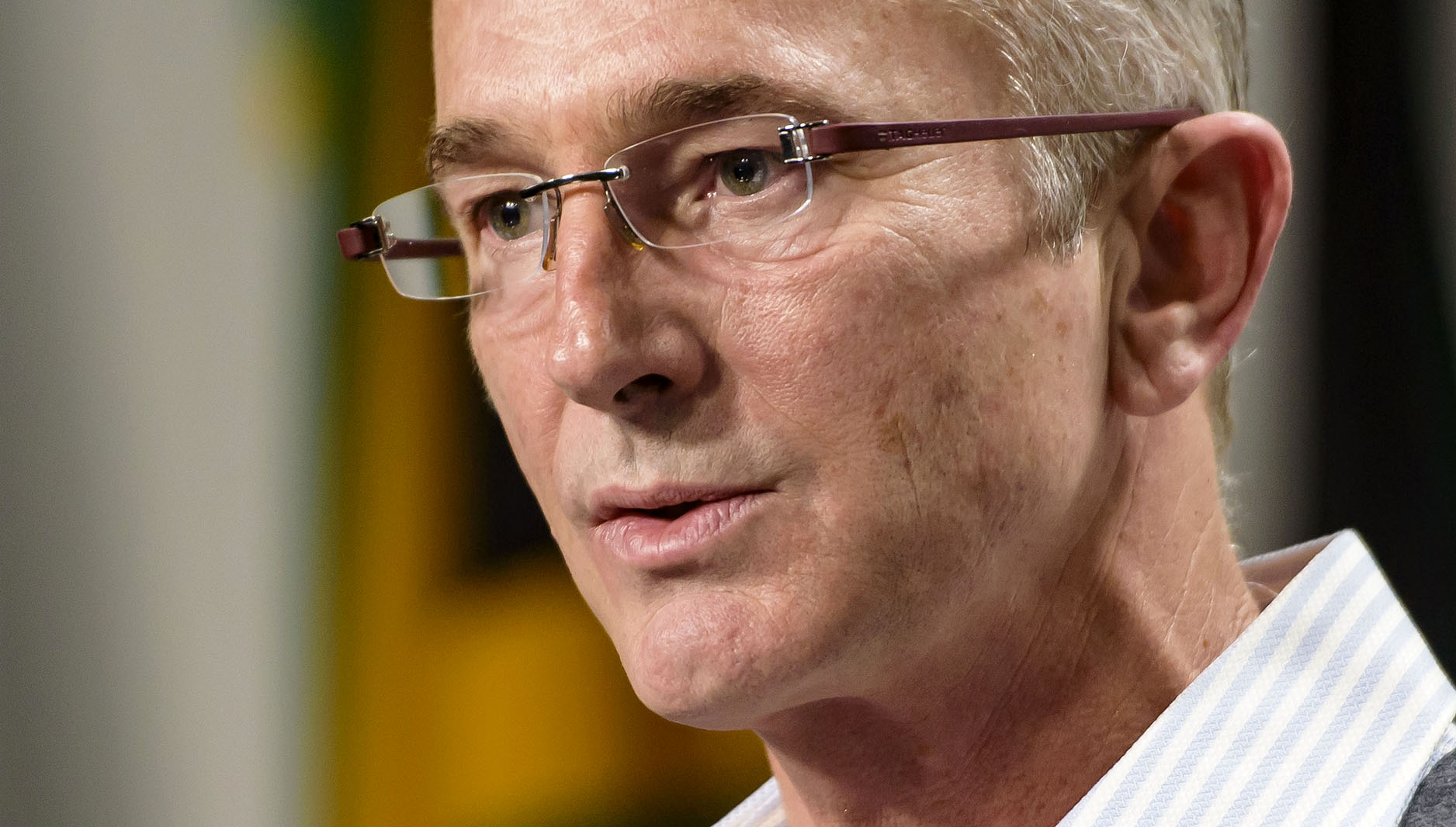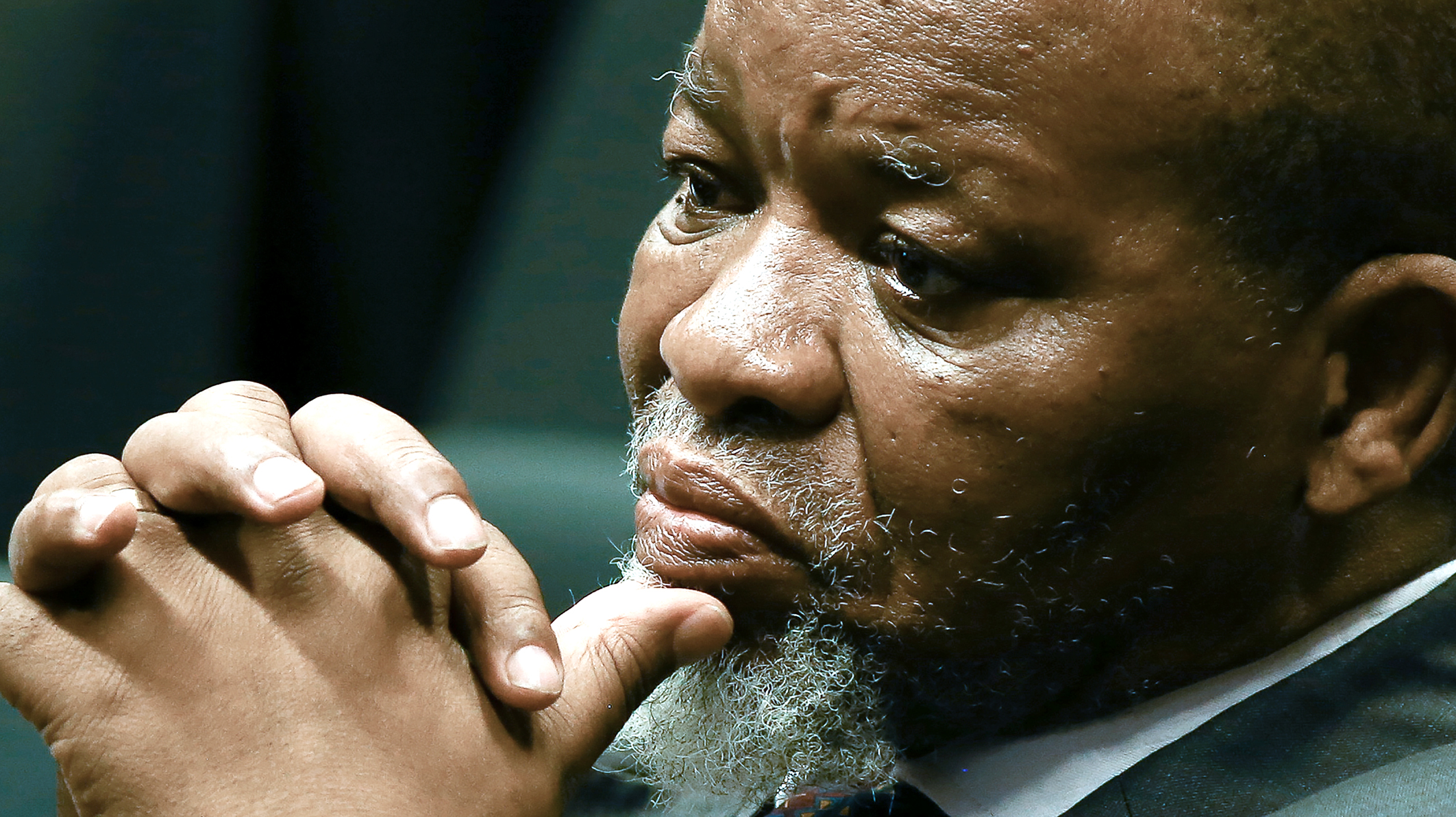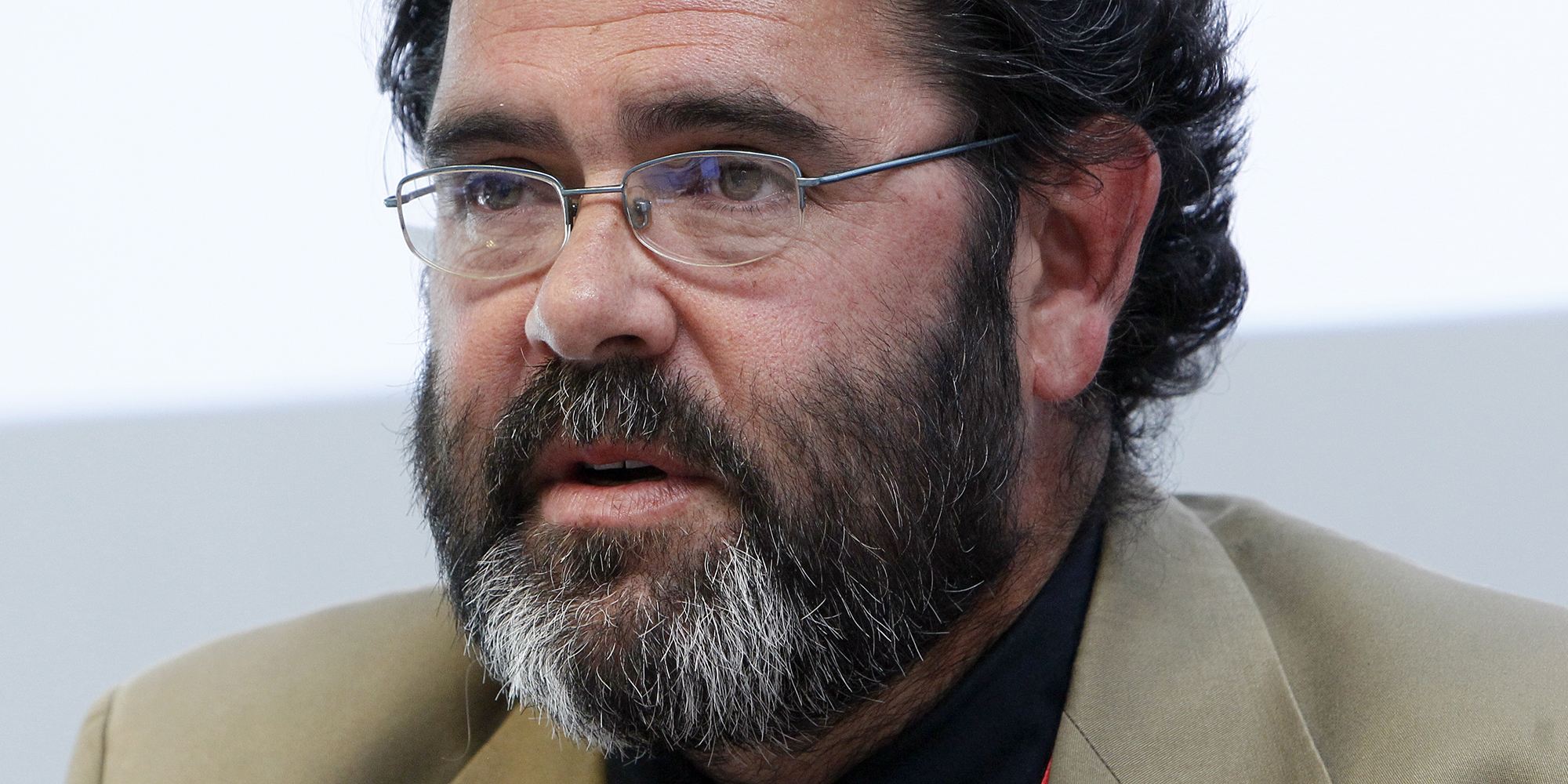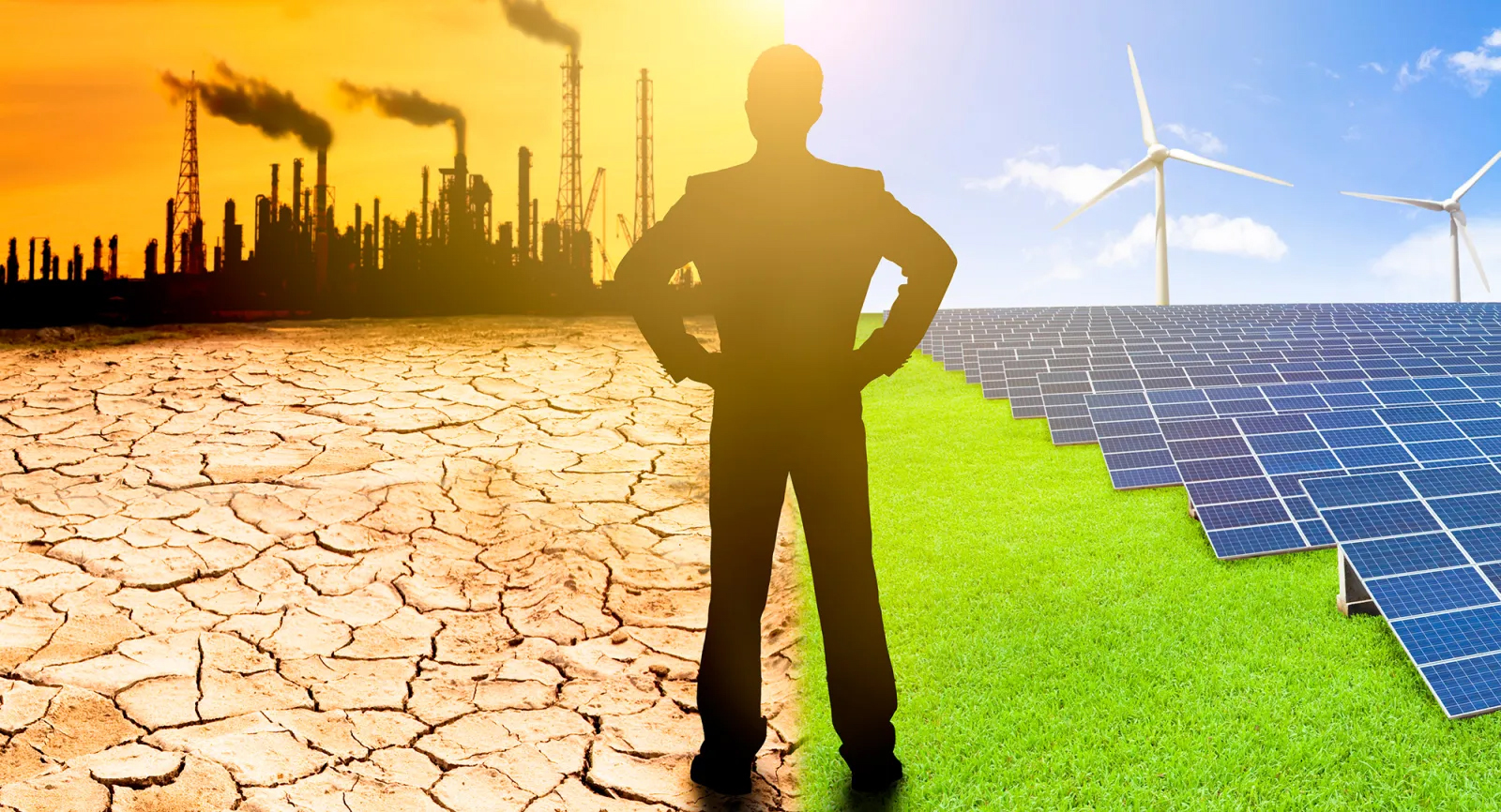Political leadership, disjointed politics around the country’s energy future and a strong fossil fuel lobby are some of the major obstacles to South Africa’s energy transition.
These were among the major themes to come out of an international research-for-policy conference hosted by the Presidency, the European Union, Agence Française de Développement and the African Centre of Excellence for Inequality Research this week.
Focused on the intersection of inequality, work and nature, the two-day conference featured an academic day and a policy-focused day on 8 and 9 November respectively.
Aiming to convene a diverse array of stakeholders from the political, academic and international development spheres, its primary goal was to delve into the complex interplay between inequality and environmental change, exploring how these dynamics shape the trajectories of development.
 Crispian Olver, executive director of the Presidential Climate Commission. (Photo: Gallo Images / Beeld / Lisa Hnatowicz)
Crispian Olver, executive director of the Presidential Climate Commission. (Photo: Gallo Images / Beeld / Lisa Hnatowicz)
On policy day, a number of reputable panellists shared some of the ways that South Africa’s political landscape and even certain politicians were hobbling the country’s nascent attempt to move from a coal-dominated energy system to one far less carbon-intensive.
I’m not saying all black empowerment is corrupt, but these interests interface with criminal aspects of the economy and they have a lock on energy policy.
In one panel discussion, titled “Inequalities and climate change: The interdependent imperative of the age”, Crispian Olver, executive director of the Presidential Climate Commission, laid out the various forces that oppose this rapid transition. He spoke about the need for economic and political forces to align with regards to the transition, saying it is not yet fully the reality in the country.
“Like in any transition, what you’ve got is the weight of the old. So, you’ve got all these old, organised economic interests around fossil fuel and heavy-emitting industries and the way that the political class is integrated with that, and then you move towards the new but the new is not yet formed – the economic interests are not properly organised, they’re not generating the returns on capital to invest in the maintenance of the political regime, so the new struggles to be born.
“It takes a very particular form in South Africa where, as part of our broad empowerment strategy, we’ve been dishing out mineral rights and coal rights to a whole range of, basically, a new elite emerging and – I don’t want to be too derogative – it interfaces with the criminal economy. It started in the coal value chain and it washed up the value chain into Eskom itself and there are various ways that it is organised.
“There is the grand State Capture machine that Zuma and the Gupta acolytes engineered, but there is also a far more decentralised operation that bleeds into the coal truckers and criminal and mafia networks on the ground. Don’t get me wrong, I’m not saying all black empowerment is corrupt, but these interests interface with criminal aspects of the economy and they have a lock on energy policy,” said Olver.
“There are deep interests which are connected into party, they’re connected into the state and they’re connected into the economy, and business in this country likes to take an outwardly progressive voice but they do interface with this grey economy very actively and it’s part of what makes it profitable for them. So, the transition comes up squarely against these interests. Rent seeking and corruption are part of what we need to talk about if we are going to engineer a consensus on this transition going forward, and I think it is going to be very difficult to get there.”
 Minister of Mineral Resources and Energy Gwede Mantashe. (Photo: Gallo Images / Ziyaad Douglas)
Minister of Mineral Resources and Energy Gwede Mantashe. (Photo: Gallo Images / Ziyaad Douglas)
He continued: “We thought we were a lot further down the road two years ago when the JETP [Just Energy Transition Partnership] was launched and the JETIP [Just Energy Transition Investment Plan] planning took place. I think the level of ambition that we put in the NDC [Nationally Determined Contributions] triggered a pushback which we have seen play out very dramatically over the past 18 months.
“And that pushback has done what it has intended to do, which is quite dramatically push climate policy back a bit.”
Read more in Daily Maverick: South Africa takes bolder steps to reduce emissions — but are they enough?
“The battle is by no means over. I think it is ultimately going to be dictated by market forces so there is only so long the rent-seeking elite can hold this back against what are dramatic drops in prices in all of the clean energy technologies. Eventually, the tide will break and push this over.”
Olver explained that by his reckoning, South Africa faces a strategic choice.
Either “we muddle along, we continue to obfuscate, we delay, we’re behind the curve as the world economy moves and we continue to shuffle downwards in terms of global competitiveness and do untold damage to our labour force, our economy, people’s livelihoods and welfare. Or we embrace the transition, we try to understand where things are going, we get ahead of the curve in the places that matter, we build out the local value chains, we create the jobs that can be created in the new energy economy and we generally uplift people.”
Debt is the new colonialism on the African continent and yet we want to finance the energy transition on the African continent using debt.
In a separate panel discussion on Thursday, on “Challenges and opportunities of a just transition”, yet more detail emerged.
Mark Swilling, co-director of the Centre for Sustainability Transitions at Stellenbosch University, explained that there are a number of reputable organisations who have modelled how much needs to be spent for Africa and South Africa to transition to cleaner energy sources and that despite the focus on international finance, South Africa’s funding needs can be met with domestic capital.
“When the Cabinet approved the JETIP, they approved R1.5-trillion over the next five years. In other words, where is the other 90% going to come from? It’s going to come from domestic sources. And there’s not a lot of disagreement that we can afford it. There’s enough liquidity, there’s enough capital in the South African economy to do that – it’s the institutional mechanisms that don’t exist to mobilise our collective balance sheet.”
Read more in Daily Maverick: Funding a greener future – Ramaphosa outlines South Africa’s R1.5 trillion three-step energy transition plan
Swilling continued: “The total electricity generation on the African continent is equal to that which exists in Germany and France. So, if Africa energises using fossil fuels, none of the Paris [Climate Agreement] targets can be achieved. You would then expect that the world would ensure that as much climate finance as possible goes to Africa. But if you look at the numbers over the past decade, only 2% of climate finance has landed up in Africa and the majority of that is debt. So, we have a debt crisis on the African continent, debt is the new colonialism on the African continent and yet we want to finance the energy transition on the African continent using debt.”
He also elaborated on his understanding of the just transition:
“The notion of a just transition is used in four ways: For some it’s just about decarbonisation, the second is decarbonisation plus social mitigation, the third is decarbonisation plus social mitigation plus upstream industrialisation, and the fourth is you can’t have a just transition without a post-capitalist transition. The third position is where we should be focusing.”
 Author and co-director of the Centre for Sustainability Transitions at Stellenbosch University, Professor Mark Swilling. (Photo: Flickr)
Author and co-director of the Centre for Sustainability Transitions at Stellenbosch University, Professor Mark Swilling. (Photo: Flickr)
Shameela Soobramoney, CEO of the National Business Initiative, said: “I concur about the enabling framework that is needed. It doesn’t help that we’re seeing differences in ideological standpoints, political positions and things like that in the country. All of that needs to come together to create an investment environment that will bring the private sector to the party.”
Swilling said that “if the minister of mineral resources and energy continues to beat up green environmental NGOs and blame the energy transition on an international conspiracy, there can be no certainty”.
Read more in Daily Maverick: Mantashe has NGOs in crosshairs (again) and wants them to declare their funding sources
He said “the politics of this is important”, adding that “the politics is in defence of an old system that is beyond salvaging and the more money you try to spend on salvaging an old system rather than recognising where the money is going, the more you’re wasting energy, wasting time, you’re actually not mobilising the extent of capital that is required”.
Asked by the moderator, Africa Melane, how the country should navigate around Mantashe who was something of an immovable rock in a flowing river, Swilling said “the water is going around him. It’s already starting in that direction and there is a build-up of a consensus in financial institutions because many of them are locked into global imperatives where they just can’t lend to build a coal-fired power station. What’s left is what Gwede doesn’t like for some unknown reason, which is renewables with some back-up in batteries and gas.”
Saul Musker, a public policy expert who works in the office of the President, tactfully agreed with aspects of what his fellow panellists had said, saying “there is never going to be complete certainty but I completely agree that you need an enabling policy and regulatory environment and you need coherence and certainty for people to invest. But you also need private sector and funders who are willing to operate in an environment with a certain degree of risk and uncertainty and volatility and we haven’t struck that balance right in South Africa yet.” DM
https://www.youtube.com/watch?v=REeWvTRUpMk




 Author and Co-Director of the Centre for Sustainability Transitions at Stellenbosch University Prof. Mark Swilling. (Photo: Flickr)
Author and Co-Director of the Centre for Sustainability Transitions at Stellenbosch University Prof. Mark Swilling. (Photo: Flickr) 